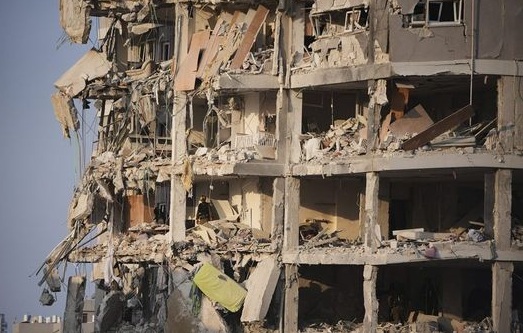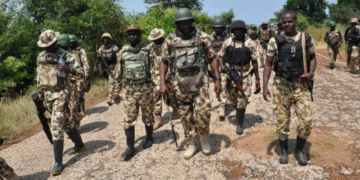Perhaps the ongoing crisis in the Middle East has not taken advantage of the joke in international relations that it is better to ‘jaw-jaw than to war-war.’ The tragedy of world leaders’ inability to heed this comic warning is the humanitarian catastrophe that results from it. That unfortunate region, perennially sitting on the proverbial keg of gunpowder, is experiencing war and the destruction it brings along. Because forces beyond its control take undue interest in its affairs, the region blessed with abundant human and natural resources continues to find itself in endless conflicts that deplete not just the resources but also the time and energy required to harness them for the benefit of the people.
Part of the challenge, in our opinion, is the surfeit of hotheads and inordinately ambitious political players who remain irreconcilable in their positions. The disappointment is that these same characters claim to be pursuing the interest of the people who had not been consulted or have been deceived into fighting a cause they understand little about.
Israel, Gaza, Lebanon and now, Iran, countries that love to hate each other, have stories to tell about the devastation that becomes part of a decision to fight it out on the battlefield instead of trashing perceived disagreements amicably on a conference table. What is happening in Eastern Europe as a result of Russia’s aggression against Ukraine is beginning to pale in significance to the danger looming in the Middle East as the warring parties toy with nuclear facilities.
What started as a terrorist attack on Israel by Hamas on October 7, 2023, is gradually snowballing into a major conflict with world powers, as usual, flexing muscles in an unconscionable bid to command and control.
As serious and worrisome as the situation is, what bothers most is the harmful impact on the civilian population that has to face the effects of the bombings and shootings. Millions, mostly women and children, need humanitarian assistance across the region.
According to the United Nations, these brutal conflicts have unleashed an unprecedented humanitarian catastrophe in Gaza and escalated tensions in the Middle East. United Nations Secretary-General António Guterres has repeatedly called for a humanitarian ceasefire, the unconditional release of all hostages, and adherence to international humanitarian and human rights law principles.
The world body pointed out that in Gaza alone, the number of dead and wounded has continued to rise. At the same time, more than 1.9 million Palestinians – about 90 per cent of the total population – have been internally displaced. Many have been displaced multiple times, as families have been forced to move repeatedly for safety. West Bank, Lebanon and cities in Israel have their fair share of this willful attempt to annihilate to prove a point.
The conflict in the region has already resulted in civilian casualties compounded by a surging refugee crisis that is straining regional and global resources. There is no need to overstate that the conflict has already had devastating economic effects on countries in the region. Attacks on oil infrastructure and shipping routes, and the fear that it could lead to significant price spikes, impacting global economic stability, is real. Media reports claim that lawmakers in Iran, in response to the attack by the United States of America, have voted to close the Strait of Hormuz, a key international oil shipping route. Economic experts are scared to imagine the effect of such a move on world trade.
Expectedly, due to the crisis in that region, even air travel is becoming endangered as most airlines, afraid of being caught in the missile exchanges, are diverting traffic, which consequently has an adverse effect on the movement of goods, services, and personal costs.
While we appreciate the international diplomatic efforts of countries like Germany, France, and the United Kingdom to de-escalate the crisis, we also believe that promoting negotiations is the only way to achieve a sustainable truce.
As a newspaper, our concern is the well-being of humanity as a whole because, as a philosopher once said, ‘the death of a man diminishes me.’ For anyone who has been through a war, it teaches a lifetime lesson. Its scars remain indelible.
From this perspective, we persuade world leaders to let reason prevail because otherwise, we will all be dead in the long run. Pope Leo XIV has passionately called for peace and urged global diplomatic efforts.
The Supreme Pontiff stressed that “every member of the international community has a moral responsibility: to stop the tragedy of war before it becomes an irreparable abyss.”
In the meantime, we believe that the way out of the cycle of conflict is for nations in the region to understand that they owe themselves a duty to accept that they are neighbours and learn to respect their right to existence and a good life. Similarly, foreign interests should rein in their meddlesomeness, which is unhelpful to the ordinary folks in the region and also to the international community at large.










